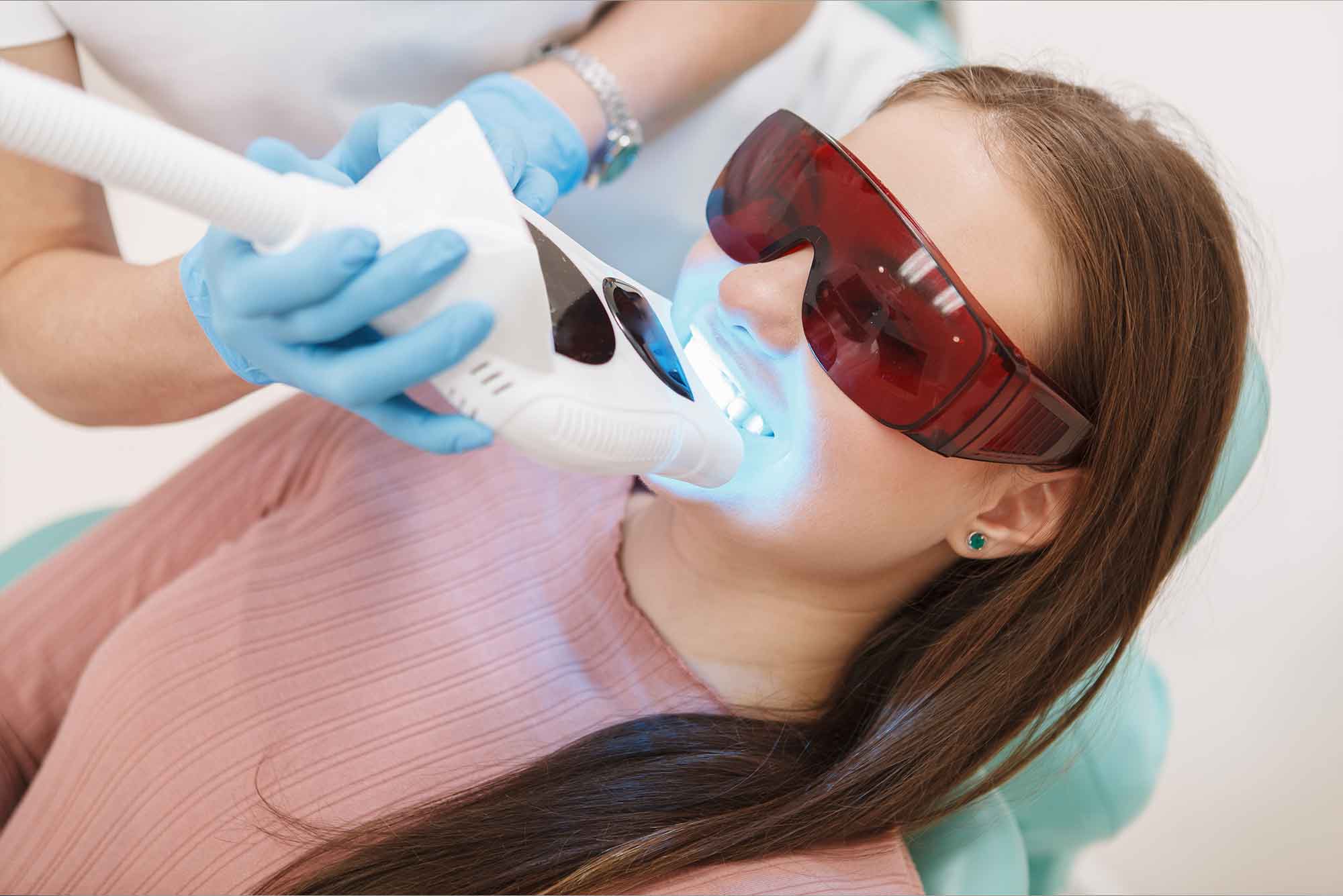How much does Teeth Whitening cost in Antalya, Turkey?
Teeth whitening prices vary depending on the price and quality of the material used in the procedure, the clinic where the procedure is performed, the experience of the dentist, the number of sessions applied, and the type of procedure performed during the process.
You can get the most accurate price information after consulting our dentists in Turkey, as the teeth whitening process can be performed in conjunction with different dental procedures in some cases.
You can contact us for information about our current prices.
Is there any pain during the teeth whitening process?
Teeth whitening is not a painful procedure. However, different procedures may occur during this process, and pain may occur depending on these procedures. In the case of using only teeth whitening gel, slight sensitivity of the teeth may occur after the procedure. In case of pain, painkillers recommended by our dentists can be used.
What is the success rate of teeth whitening?
The success rate of teeth whitening can vary depending on the whitening method used and individual factors. In general, teeth whitening is a procedure with high success rates. The dentist or clinic performing the procedure will assess the factors causing the yellowing of the patient’s teeth before the procedure and select an appropriate whitening method.
Products such as home whitening kits, teeth whitening pens or teeth whitening strips have a lower success rate than professional whitening procedures. However, they can still make a noticeable difference when used regularly.
Professional teeth whitening procedures generally have a success rate of between 70% and 90%. However, factors such as smoking or consuming colored foods and drinks after the procedure can affect the permanence of the whitening results. Therefore, taking care of dental hygiene and implementing a proper care program after the whitening process ensures that the whitening results are long-lasting.
Do yellow teeth stay white?
If your teeth are just yellow, they can be whitened by applying the bleaching process. However, if the factors that cause your teeth to yellow (e.g. aging, smoking, drinking coffee or tea) persist, your teeth may become yellow again over time. In addition, yellow teeth can sometimes be a sign of health problems, so it is important to see a dentist and determine the cause.
Are there any side effects of teeth whitening?
Teeth whitening is generally a safe and mostly harmless procedure. There is no research showing that teeth whitening causes structural changes and permanent damage. These side effects can vary depending on the method of whitening, the dentist performing the procedure, the products used, and individual factors. Studies have shown that a 10 percent bleaching solution is not harmful. Uncontrolled teeth whitening on deteriorated and weak enamel causes damage to the teeth.
The most common side effects of teeth whitening are:
Teeth sensitivity may occur after the whitening process. This is a known, expected and temporary side effect. It will go away within 24-48 hours. If the sensitivity does not go away, your dentist will apply fluoride or recommend toothpaste or creams containing potassium nitrate.
Your gums may become scratched or irritated during the whitening process. In this case, you should see a dentist.
Your teeth may become discolored after the whitening process. This is a rare condition and can usually be corrected.
Temporary white spots may occur on your teeth after the whitening process. These spots usually disappear within a few days.
Some people may feel nauseous due to the taste of the whitening gels. In this case, you should contact your dentist.
Most of these side effects are temporary and resolve on their own quickly. However, in case of any side effects, you should see a dentist. It is also important to discuss the risks and side effects with your dentist before the whitening procedure.
What are the best teeth whitening methods?
The best teeth whitening method is the in-office whitening method under the supervision of a doctor. This is because our specialist doctors intervene immediately in any problems that may arise during the procedure. In case of contact of teeth whitening gels with soft tissues, immediate precautions can be taken.
What should not be eaten after teeth whitening?
Teeth whitening can cause your teeth to become yellow or discolored again. Therefore, it is recommended to avoid (7-10 days) the following foods and drinks after teeth whitening:
Smoking.
Fruit juices.
Soda.
Food sauces.
Colored foods (caramel, tomato paste).
Red wine and other types of alcohol.
Caffeinated drinks such as coffee, tea, and cola.
Colored sauces such as soy sauce and balsamic vinegar.
Sugary foods such as chocolate, cake, and candy.
Colored fruits include citrus fruits, cherries, cranberries, raspberries, cherries, and blueberries.
In addition, hot or cold foods and drinks should be avoided within 24 hours after the procedure.
What foods help remove stains on teeth?
Foods that help remove stains on teeth include:
Apples have a fibrous structure and also contain acids that clean tooth enamel.
Strawberries contain malic acid, which helps whiten teeth. They also contain vitamin C, which protects tooth enamel. You can eat strawberries or mash them and rub them on your teeth. Carrots contain fiber that cleans your teeth and also protects tooth enamel. Chewing carrots increases the production of saliva and helps clean your teeth. Oranges contain vitamin C, which protects tooth enamel. In addition, eating oranges increases the secretion of saliva and helps clean your teeth. Dairy products such as cheese and yogurt contain calcium and phosphorus, which strengthen teeth and protect tooth enamel. Pineapple contains an enzyme called bromelain, which helps whiten teeth. It also contains vitamin C and is beneficial for gum health. Water increases the production of saliva, which helps clean your teeth. In addition, drinking water removes acids and stains that damage your teeth. You can add these foods to your diet to prevent tooth stains and whiten your teeth. In addition to these foods, cucumber and celery can also be helpful in removing stains.


